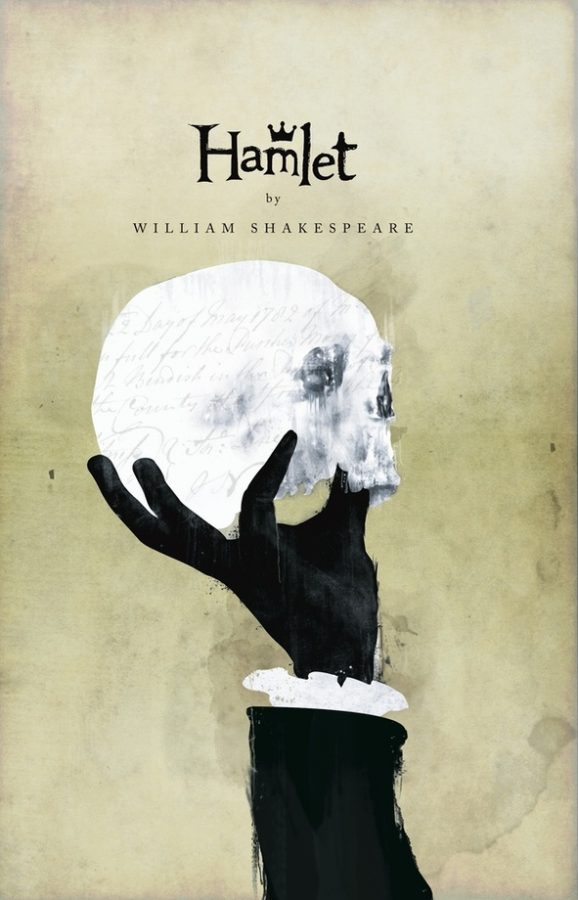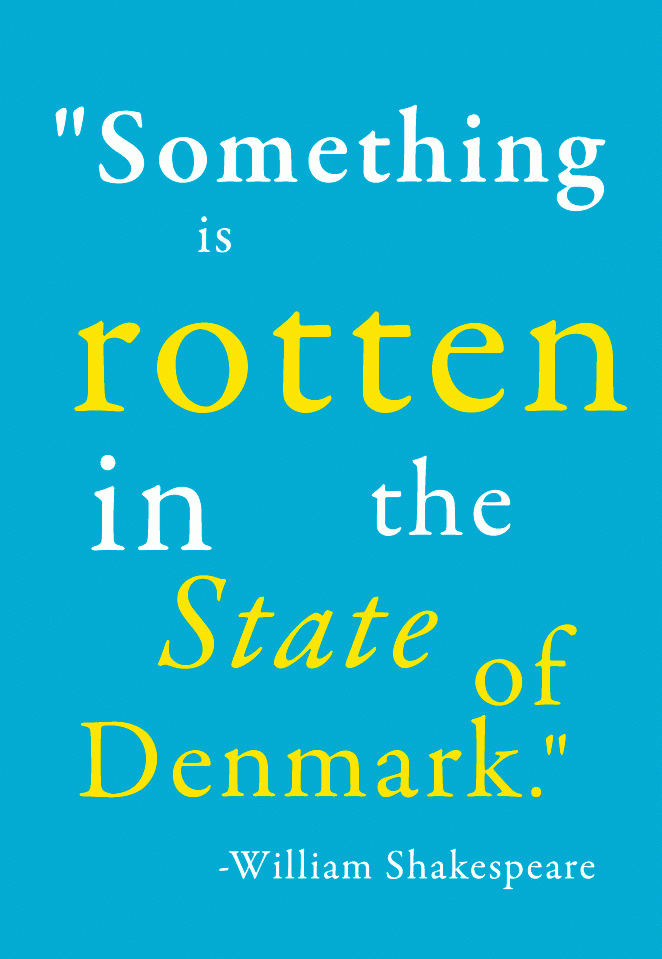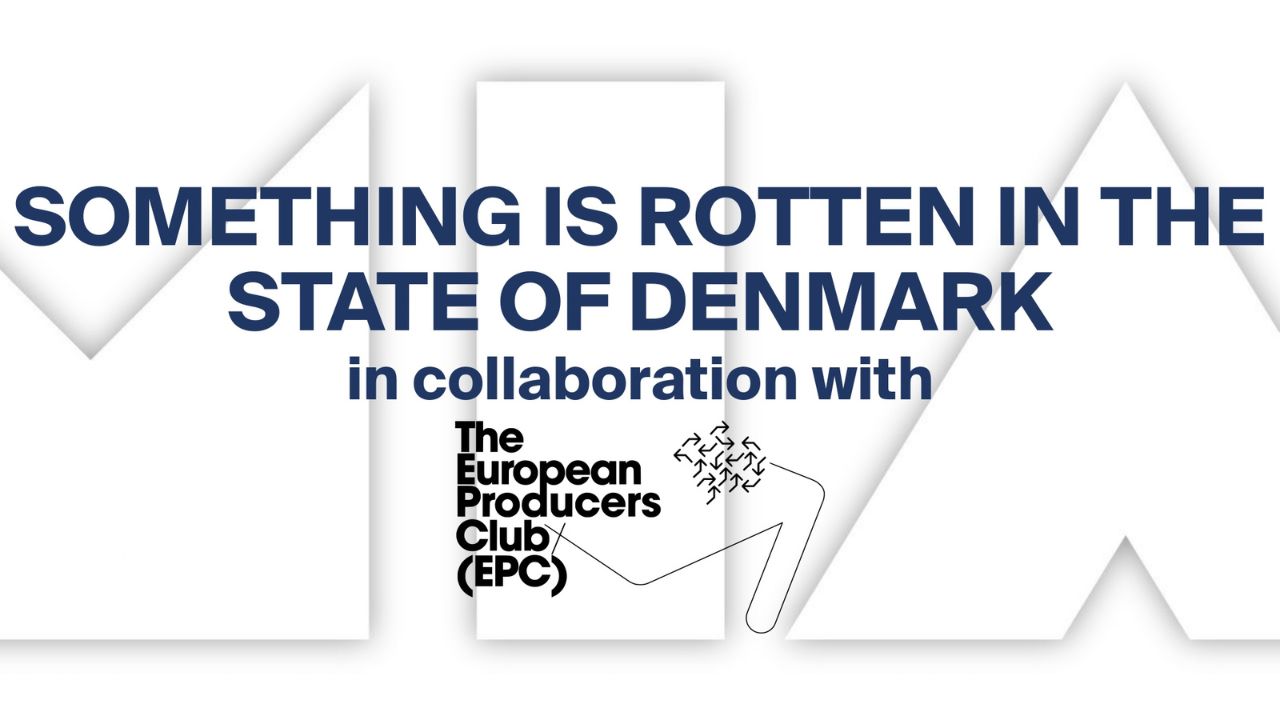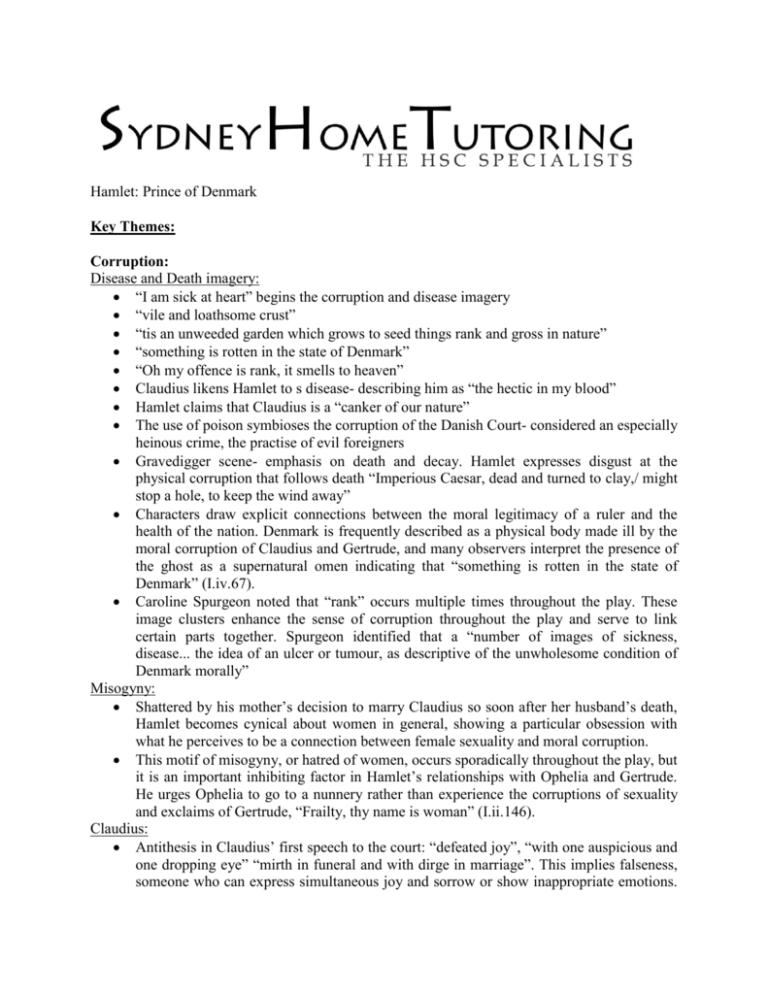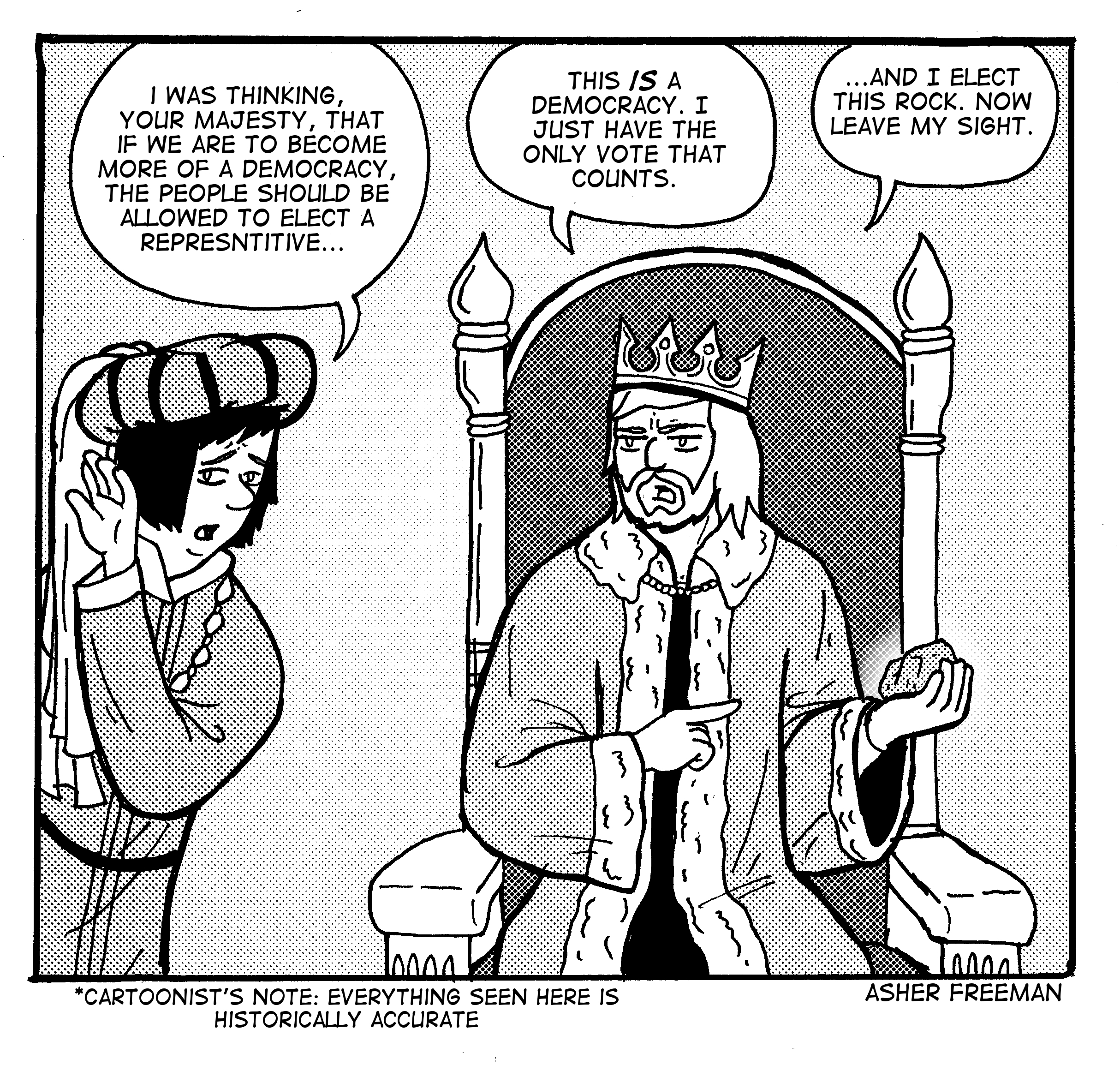"Something is rotten in the state of Denmark" is a phrase made famous by Shakespeare in his play "Hamlet," which refers to the corruption and decay that exists within the Danish court. The phrase has become a metaphor for any situation where something is not right or is corrupt within a system or organization.
In the play, the character of Hamlet utters these words as he is grappling with the revelation that his uncle, Claudius, has murdered his father, the King of Denmark, and taken the throne for himself. Hamlet is deeply troubled by this revelation and by the fact that no one else seems to be aware of the corruption that has taken root in the court.
The phrase "something is rotten in the state of Denmark" highlights the theme of corruption and its destructive effects on individuals and society as a whole. It also speaks to the idea that there may be larger forces at work that contribute to this corruption, such as greed or a desire for power.
The concept of corruption is not limited to the world of Shakespeare's plays. It is a universal issue that has plagued societies throughout history and continues to do so today. It can take many forms, from financial corruption to political corruption to corruption within organizations or institutions.
The negative effects of corruption are far-reaching and can be devastating. It undermines trust in the systems and institutions that are meant to serve the public, and it can lead to social unrest, economic inequality, and the concentration of power in the hands of a few. It also diverts resources and attention away from important issues and priorities, such as healthcare, education, and the welfare of citizens.
In order to combat corruption, it is important to identify its root causes and to implement effective strategies to address them. This may involve improving transparency and accountability, strengthening institutions and regulatory frameworks, and promoting ethical leadership and values.
In conclusion, the phrase "something is rotten in the state of Denmark" serves as a cautionary tale about the destructive power of corruption and the importance of addressing it in order to create a just and healthy society.

